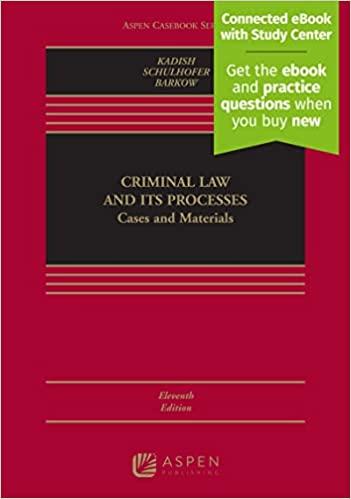Question
Under the provisions of the Marine Resources Amendment Act (No. 5 of , 2015 ) the Minister of Fisheries is given the authority to allocate
Under the provisions of the Marine Resources Amendment Act (No. 5 of , 2015 ) the Minister
of Fisheries is given the authority to allocate fishing quotas to fisher folk who are the most
needy but industrious. The Act does not provide any guidelines for determining who is most
needy but industrious.
For political reasons, the Minister allocates fishing quotas to members of his political party
and close associates, some of whom are not even fishermen.
Some of the fishermen are extremely appalled at this turn of events. They ask the Minister to
meet with them to discuss their grievances but he refuses to do so.
The law empowers the Minister to set up a Watch Committee to resolve fishing disputes,
including the issue of licenses. But the Minister says that in the exercise of his discretion, he
can act as he pleases.
He refuses to refer the complaints to the Watch Committee.
The dissatisfied fishermen have come to consult you for advice. They wish to commence legal
proceedings.
Source: West Indies University
1.1 Explain what an administrative law relationship is. Advise the fishermen whether or not
they are a subject of an administrative law relationship in this instance. (6)
1.2 Explain to the fishermen, with reference to decided cases, the concept of 'administrative
action' and advise them on whether or not an administration action was taken in this
instance. (7)
1.3 Clarity to the fishermen the distinction between a circumscribed/narrow discretion and a
free/broad discretion. Which type of discretionary power is present in this instance? (7)
1.4 Explain to them whether discretionary powers, howsoever phrased, can be exercised in an
unfettered manner as suggested by the minister? Refer to decided cases to motivate your
answer.
1.5 Is the Minister able to change his decision? Advice the fishermen on this aspect with
reference to the principles of functus officio. At what point will the minister no longer be
able to change his decision? Cite examples from case law illustrating how these rules
have been applied.
1.6 It transpired that the allocation of fishing quotas was done by the deputy-minister. The
minister was apparently in Iceland at the time the quotas were supposed to be allocated.
He subsequently delegated his deputy to allocate the quota. What does administrative
justice dictate in such instances? Explain to the fishermen, with examples from case law
how such instances are dealt with from an administrative justice point of view.
Step by Step Solution
There are 3 Steps involved in it
Step: 1

Get Instant Access to Expert-Tailored Solutions
See step-by-step solutions with expert insights and AI powered tools for academic success
Step: 2

Step: 3

Ace Your Homework with AI
Get the answers you need in no time with our AI-driven, step-by-step assistance
Get Started


